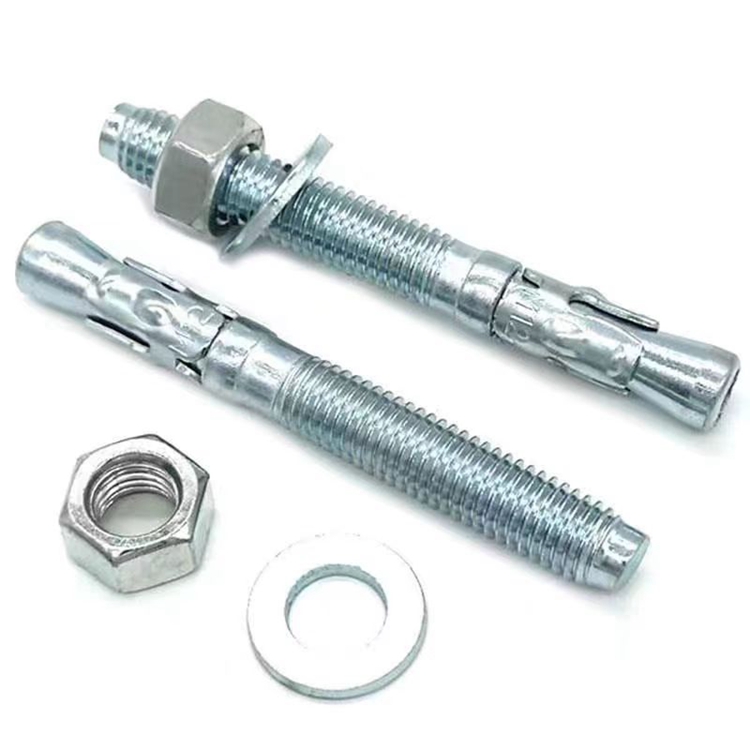Purchase 3 to 8 Units of 1.4-Inch Stud Bolt for Optimal Performance
Dec . 09, 2024 18:20 Back to list
Purchase 3 to 8 Units of 1.4-Inch Stud Bolt for Optimal Performance
Understanding the Purchasing Process for 3/8 to 1/4 Stud Bolts
When it comes to construction and manufacturing, the quality and specification of fasteners play a crucial role in the integrity and durability of structures and products. One common type of fastener is the stud bolt, which can be essential for various applications. This article will explore the importance of purchasing 3/8 to 1/4 stud bolts, considerations when buying them, and the benefits they bring to your projects.
What are Stud Bolts?
Stud bolts are elongated fasteners that do not have a head and are instead threaded on both ends. They are primarily used in situations where a traditional bolt cannot be utilized effectively, such as in piping or machinery assemblies. Stud bolts accommodate various nuts on either end, allowing for a strong and secure fastening method. When discussing sizes, the 3/8 to 1/4 designation refers to the diameter of the stud bolt shaft, which can significantly influence its load-bearing capacity and application suitability.
Importance of Size in Stud Bolts
Choosing the right size in stud bolts, such as the 3/8 to 1/4 range, is critical for achieving optimal mechanical performance. Different applications require varying levels of torque and strength; hence, selecting the correct size ensures that the bolted joint maintains its integrity under operational stresses. For instance, a 3/8 stud bolt is typically utilized in heavy-duty applications, while a 1/4 stud bolt may suffice for lighter loads or less critical joints. Understanding these distinctions helps engineers and procurement professionals make informed decisions to ensure safety and reliability.
Quality Considerations
When purchasing stud bolts, quality should be among the top considerations. The tensile strength and material composition of the stud bolt determine its performance under stress and environmental factors. Common materials for stud bolts include stainless steel, carbon steel, and alloy steel. Each material offers different benefits; for example, stainless steel may be more resistant to corrosion, making it ideal for outdoor or marine applications. Be mindful of industry standards such as ASTM or ISO certifications to ensure that the products meet essential performance criteria.
buy 3 8 to 1 4 stud bolt

Sourcing Stud Bolts
Finding a reputable supplier for stud bolts ranging from 3/8 to 1/4 can make a significant difference in project outcomes. Look for suppliers that specialize in industrial fasteners and have a good track record of providing high-quality products. Online platforms, local distributors, and manufacturer websites can be excellent starting points for sourcing stud bolts. Be sure to compare prices, lead times, and customer service to select the best supplier for your needs.
Bulk Purchasing Options
If your project requires a substantial number of stud bolts, consider bulk purchasing. Many suppliers offer discounts for large orders, which can lead to significant cost savings. Furthermore, buying in bulk often ensures that you have a reliable supply of fasteners, preventing delays in your project due to shortages. It's essential to communicate with your supplier about your requirements and any potential need for custom specifications to ensure you receive the right products on time.
Conclusion
Purchasing 3/8 to 1/4 stud bolts can seem straightforward, but the implications of your choices extend beyond simple procurement. Assessing the right size, ensuring quality, sourcing from trusted suppliers, and considering bulk purchasing options are critical steps that can influence the success of your construction or manufacturing projects. By paying attention to these aspects, you can ensure that the stud bolts you use contribute to the durability and integrity of your applications, ultimately leading to safer and more reliable results.
In summary, whether you're an engineer, project manager, or purchasing agent, understanding the nuances of stud bolt specifications, materials, and sourcing can significantly impact your project outcomes. Therefore, take the time to educate yourself on these essentials and make informed purchasing decisions to enhance the quality of your work.
Latest news
-
Reliable Axle Nuts Supplier | High-Quality Automotive Parts
NewsAug.19,2025
-
Premium Wire Bolts Suppliers | Durable & Reliable Fasteners
NewsAug.18,2025
-
Leading Metric Wood Screw Companies & Manufacturers
NewsAug.17,2025
-
Top Wire Bolts Suppliers - Quality & Durable Fasteners
NewsAug.15,2025
-
Trusted Wire Bolts Company | Quality Fasteners Supplier
NewsAug.14,2025
-
Reliable Wire Bolts Suppliers & Manufacturers for Global Needs
NewsAug.13,2025
